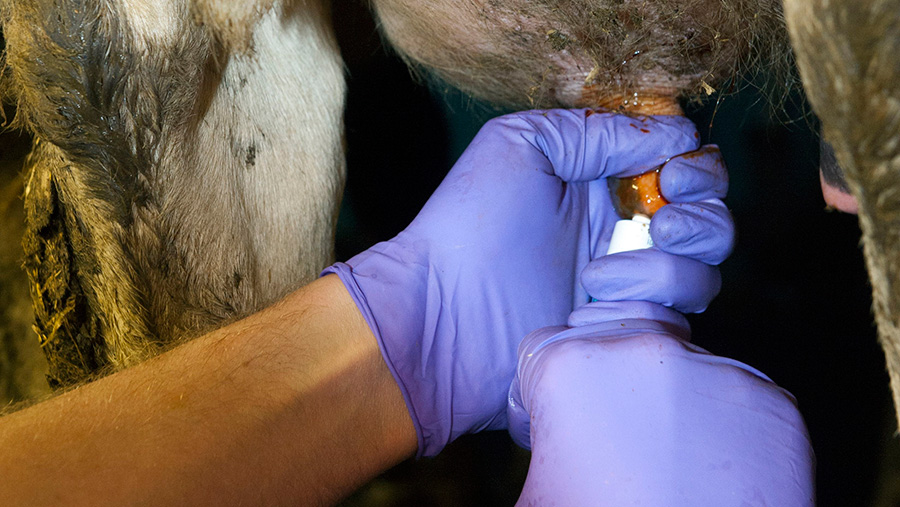Stewardship scheme could cut antimicrobial use
 © FLPA/Wayne Hutchinson/REX/Shutterstock
© FLPA/Wayne Hutchinson/REX/Shutterstock Getting farmers to work together to implement a stewardship policy could help cut the use of antimicrobials (AM) on farm, a pilot study has shown.
Research by University of Bristol’s School of Veterinary Sciences found when farmers, vets and researchers worked together to implement an antimicrobial stewardship policy, it led to changes in farming practice and reduced antimicrobial use.
See also: Read about Farmers Weekly’s safe use of medicines campaign
How the stewardship policy was put together
The policy development process began with two dairy producer groups consisting of 25 organic producers and 48 conventional producers supplying one of the UK’s major retailers.
What is the difference between antibiotic and antimicrobial?
- An antimicrobial is capable of destroying or inhibiting the growth of a microbe, including bacteria, fungi, viruses and protozoa.
- An antibiotic is a substance capable of destroying or inhibiting the growth of bacteria (antibacterial)
A series of meetings and workshops was held between May and August 2015 to create and develop the on-farm AM stewardship policy that identifies critical points to reduce use without compromising animal health and welfare.
Roll out to other sectors
It is hoped the pilot could be rolled out to other sectors to promote more responsible use of AMs in other livestock species using such methods.
Commenting on the trial Kristen Reyher, from Bristol’s School of Veterinary Science, said: “Farmers have repeatedly told us – and shown us – that they are willing and able to address medicine use on farms and are interested in using AMs responsibly.
“Participatory approaches like the ones used in this project provide ways for farmers to respond to the public’s concern about AM use in a very real and constructive way.
“Although many producers were already strict in their AM use, including organic farmers, almost 60% believed they could make changes to their use of medicines after taking part in the policy development process,” Dr Reyher added.
Six top tips on responsible medicine use
- Act to reduce the chances of resistance Using the right wormer and antibiotics to treat the exact cause of a problem will prevent resistance from building.
- Follow vet and medicine instructions Underdosing or not finishing a course of treatments could lead to resistance build up, whereas incorrect storage and vaccination timings could leave treatments ineffective.
- Use the right measures Weigh animals and check dosing guns to ensure correct treatment.
- Make informed treatment decisions through records and testing Establish the cause of infection and identify the best treatment strategy. Using the wrong medicine will be a waste of money and could cause treatment failure and resistance.
- Challenge traditional practices and “farm blindness” It’s easy to slip into bad habits and do what you’ve always done. Step back, speak to your vet and assess what you’re doing.
- Have an effective and active health plan Revise it regularly; don’t just stick it on the shelf and forget about it.
